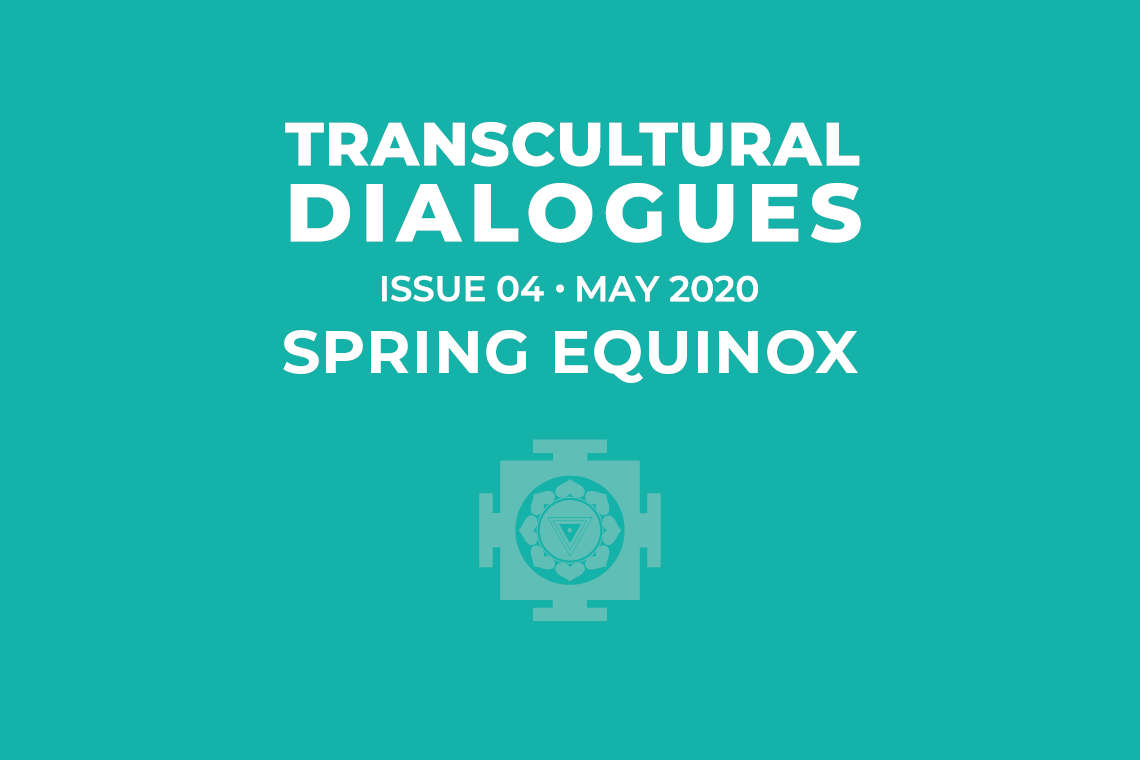
- » Adrián Navigante
Director Alain Daniélou Foundation Research and Intellectual DialogueThis essay, written by Adrián Navigante at Zagarolo in the period from March 10 to 25 (the worst moment of the Corona crisis in Italy), attempts a broader horizon of reflection concerning our experience of this pandemic, bearing especially in mind Alain Daniélou’s “Shaivite-Dionysian” attitude as a kind of existential guideline. If viewed as an interruption of “normal life” (with the wish to return to it as soon as the critical moment is over), nothing will have been learned from the Corona crisis, since the criterion of normality many people long for is an essential part of what produced the worldwide emergency: predatory environmental politics and an utter disregard for Nature as the most concrete and never-fully-understood source of Life.
Read » - » Alain Daniélou
- THE MEANING OF GAṆAPATI
This text is part of a longer essay by Alain Daniélou published in the Adyar Library Bulletin (Vol. XVIII, part 1 § 2) in 1954. In what follows, the chosen passages on the famous deity Gaṇapati or Gaṇeśa (the origins of whom should be traced back to Shiva’s companions, called Gaṇas) have been edited bearing in mind Daniélou’s unpublished notes and variations in typed and handwritten form, which have also necessitated minor changes concerning grammar, spelling and style.
Read » - » Paolo Eugenio Rosati
PhD in Indology and Alain Daniélou Foundation GranteeVIOLENCE AND EROTICISM IN EARLY MEDIAEVAL TANTRA AT KĀMĀKHYĀ
In this essay, Paolo Rosati discusses one of the numerous factors that contributed to the emergence of the Tantric cult of the Goddess Kāmākhyā: the relationship between death imaginary and sexual symbolism. Mythological sources reveal that when Naraka—the first mytho-historical king of Kāmarūpa—ascended to the throne of Prāgjyotiṣapura, the cult of the Goddess Kāmākhyā was institutionalised within the folds of Brahmanism. The Kāmarūpa kingship, through the legitimation of Naraka as the royal ancestor and his related symbols of sexuality and death, integrated and justified the Tantric cult of Kāmākhyā centred on blood sacrifices and sexual rites, while the ritual violence of shedding blood emerged as the prescribed ritual in acceding to the kingship of Kāmarūpa.
Read » - » Bernard Rio
Writer and independent researcher on Celtic culture - THE DRUIDS’ RELATIONSHIP WITH NATURE
In this essay, which is an extended version of Bernard Rio’s talk at Alain Daniélou Foundation’s Forum “Transcultural Encounters 2019”, the author presents the world of the Druids from a
historical and symbolic perspective, inquiring mainly into their relationship with Nature. From etymological speculations on the word “druid” to reflections on the organisation of society, as well as on the philosophical and religious conception of ancient Celtic culture, the essay deals with the complex issue of how the Druids managed to reach a highly elaborate cultural development without losing their bond with the sacrality of Nature.
Read » - » Sunandan Chowdhury
Independent Scholar, Alain Daniélou Foundation grantee and Editor & Publisher, Sampark Publishing House, Kolkata, IndiaKALI YUGA, CORONA AND ALAIN DANIÉLOU
How will Corona impact the future of humans? The planet earth, the physical universe, will not end but chances are that the post-World War II lifestyle will. In this essay, Sunandan Chowdhury prods the reader to wonder whether Corona is modernity’s karma, a wakeup call to stem the unending expansion of industrialism, capitalism and consumerism; natural justice meted out for the viruses once exported unwittingly from Europe to the Americas 500 years ago, decimating seven hundred cultures. Drawing among others on the ideas of Alain Daniélou, this essay attempts to show that the ‘American Dream’ that so many people in the world take as a model has proved a nightmare to civilisation.
Read »

